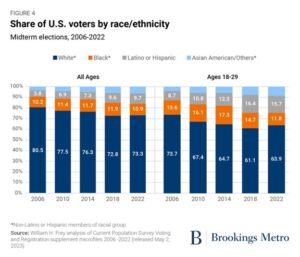The United States is a representative democracy, meaning the citizens elect the government. Citizens vote for officials to represent their ideas and concerns in government.
Election Day in the U.S. is fast approaching – November 5, 2024. As a new U.S. citizen over the age of 18, this is your opportunity to participate in shaping the country’s future.
Here is what you need to know about the process to vote with confidence.
Registering to Vote – Voting as a New U S Citizen
You must register before voting. Registration allows you to participate in elections at local, state, and federal levels.
You may have already registered during your naturalization ceremony, but it is easy to confirm your registration status if you are unsure. Check online or visit your local election office to verify. Also, look out for a voter registration card in your mail.
Remember to update your details if your address or name changes after registering. If you have completed your naturalization ceremony but are yet to register, do not delay. Register as soon as possible to ensure your eligibility to vote.
How to Register – Voting as a New U S Citizen
Each state has unique registration options, giving you flexibility in how you sign up:
- Online Registration: Most states offer online registration. Check your state’s requirements to see if you are eligible to register online.
- Mail-In Registration: You can download the National Mail Voter Registration Form, which is usable in all states except New Hampshire, North Dakota, Wisconsin, and Wyoming. The form is available in multiple languages for your convenience.
- In-Person Registration: Local and state election offices and most state motor vehicle offices, allow you to register in person.
Verify Registration Deadlines – Voting as a New U S Citizen
Deadlines for voter registration vary by state, with some requiring registration up to 30 days before Election Day and others allowing same-day registration. Check your state’s deadline to avoid any last-minute surprises.
Source: brookings.edu
The white share of the voter population has declined from 80.5% in 2006 to 73.3% in 2022. This decline can be partly attributed to increased immigration and naturalization of new citizens.
About the U.S. Elections (Local and National Levels)
U.S. elections are held at the local, state, and federal levels, each influencing different parts of citizens’ lives.
Local elections involve voting for mayors, city council members, or school boards, influencing decisions on public transportation, education funding, and other community services. State elections often include governors, state legislators, and judges, who impact broader policy issues.
Every four years, the country holds a presidential election to determine the next president of the United States. The U.S. Congress is divided into two parts: the House of Representatives and the Senate. Congressional elections mainly occur in the middle of each president’s four-year term.
Members of the House represent districts within a state and are elected every two years. Senators represent entire states, and they serve six-year terms. However, not all Senate seats are up for election at the same time.
Know Your Ballot – Voting as a New U S Citizen
Your ballot will vary based on your state and locality, listing candidates, and ballot measures. You can often find sample ballots on your state’s election website, allowing you to review candidates and proposals in advance.
Take your time to research and make informed decisions.
Get Involved as a Poll Worker
Supporting your community on Election Day goes beyond casting a ballot; you can also serve as a poll worker.
This role involves helping to set up voting locations, assisting voters, and ensuring the voting process runs smoothly. Poll workers are compensated for their efforts, though rates vary by location.
Check with your local election office to learn more about becoming a poll worker.
Resources for Voting as a New U S Citizen
There are several organizations ready to support you in your preparation to vote as a new U.S. citizen:
- Office of New Americans: Many states have resources to assist new citizens with voting and civic engagement.
- Literacy Centers: Local literacy centers can offer assistance if you need help understanding ballots or election information.
- Community Groups: Connecting with other new citizens with U.S. elections experience can be helpful.
Language Support
Voting assistance is available if English is not your primary language. Your local election office may provide ballots, voting guides, and poll workers who can assist you in your preferred language, including American Sign Language.
You may also bring a friend or family member to help you translate at the polls.
Know Your Rights – Voting as a New U S Citizen
Federal laws safeguard your right to vote. The Department of Justice’s Know Your Rights Voting Guide explains the protections for voters. This guide, also available in Spanish, outlines what to do if:
- Someone questions your right to vote,
- You lack access to voting materials in your preferred language.
- You require reasonable accessibility accommodation at your polling place.
Special provisions also apply to college students, individuals with disabilities, and citizens voting from outside the U.S.
Voting Restrictions for Permanent Residents
If you are a lawful permanent resident (green card holder) but not a U.S. citizen, remember that voting in federal or state elections is illegal.
You do not possess voting rights like citizens do. However, you may be asked if you want to register when visiting the Division of Motor Vehicles (DMV). Accepting the offer could put your residency status at risk.
Take Action on November 5, 2024!
Election Day is just around the corner and now is the time to plan to vote. As a new U.S. citizen, voting is your fundamental right and contribution to democratic governance.












